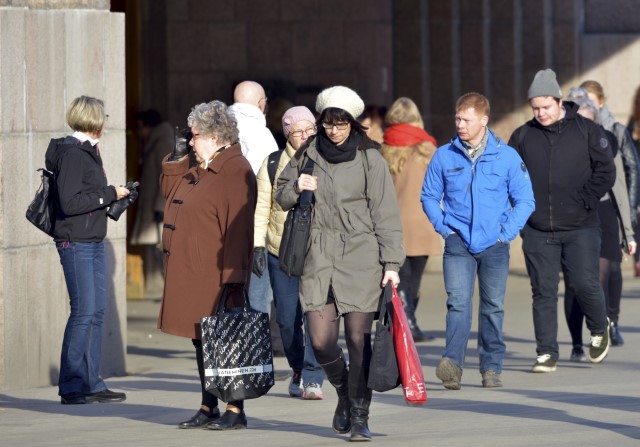A while ago, I participated as a commentator in a publishing event for the book Talous kasvun jälkeen (The post-growth economy). My reading platter was served, and I avidly grabbed hold of the appetising book. For friends of spiced food for thought, the book – with exotic condiments – offers an abundance of conceptual reflection from the perspective of not-so-mainstream economics. Nonetheless, fresh basic ingredients usually form the basis of good food. And so it is here, too. At the beginning of the book, there are quite a few references to the vision of sustainable well-being according to which Western societies – including their economies – should be reformed in a way that tackles well-being in a comprehensive manner while adjusting to the planetary boundaries. The key question arising here concerns the role of the economy in producing sustainable well-being. Moreover, is utopia the pursuance of economic growth or is it the giving up of the compulsion to grow? The book introduces eight myths related to economic growth, and the counter arguments for these myths are presented by examining the multidimensional and complex links between the economy, well-being and the environment. Many of the arguments are already well known from earlier criticisms of economic growth. However, the book’s important contribution is that it does not dwell only on the criticism of economic growth but carries the debate forward by considering the kinds of elements upon which a society liberated from the compulsion to grow can be built. The book published by Gaudeamus was written by Maria Joutsenvirta, Tuuli Hirvilammi, Marko Ulvila and Kristoffer Wilén. The circle of concepts and the challenge of the complexity of economy The approach of the book might be best summarised by going back to Albert Einstein’s famous statement: “We can’t solve problems by using the same kind of thinking we used when we created them”. In my opinion, this is by and large the book’s approach. The way the book tackles the current concepts central to the economy and the circle of dependence between them makes the reader almost pass out. The book provides a new, broader interpretation of the economy, labour, money, value, wealth, producers, consumers, production factors, productivity, efficiency and technology – just to mention a few – as long as those terms are understood in the framework of sustainable well-being. But not even the broadening of traditional economic concepts is enough. So the book teems with numerous less well-known variants of economic creeds. Among the traditions of ecological, institutional or feminist economics we find concepts such as thermodynamics, entropy and common wealth. What is interesting, however, is that among all the concepts destined for reform there is no attempt to redefine the concept of economic growth. This left me thinking whether the concept of economic growth could be understood in a novel way if both “the economy” and “growth” were understood the way the book defines them. The circle of concepts may seem confusing in its multidimensionality, but so are also many of our problems of sustainable well-being that demand solutions. These include problems such as climate change and widening disparities in society. According to Timo Hämäläinen, there are two ways to approach complex problems. First, efforts can be made to simplify the problem and its links and dependencies in order to solve it, for example with the help of simplifying theories, models, rules or standardisation, all the while keeping within the structures of the current decision-making process. This is actually what we are concerned about when economic goals are put at the heart of society’s decision-making processes and only limited attention is paid to social and ecological viewpoints. Another option is to try to ensure that decision-making and its knowledge base correspond, as far as their complexity is concerned, to the complexity of the problems. We can endeavour to do this for example by increasing shared learning, multidimensional social debate and participatory decision-making. However, this approach being laborious, it may be possible to find some functioning solution models between these two approaches. The book strives to deal with complex problems boldly and from many dimensions but also in a way that would not lead us too far from the structures currently affecting our actions. Theories or stories? The authors of the book point out that ordinary folk, when faced with questions on the economy, find it difficult to distinguish indisputable facts from views believed to be just as indisputable. Although I have defended my PhD thesis in the field of economics, I feel that quite often I can count myself among common people in this respect. Are we actually dealing with theories or stories? This is also what the authors are pondering. Do stories dislodge theories as tools when the complexity of the problems seeking solutions keeps on increasing and the change required is both urgent and systemic by its nature? How can we spot that believable and attractive story which sets change in motion? Decentralised solutions, the sharing economy, downshifting, shifting to part-time work, basic income, work guarantees, regulation of advertising and the firewall of companies and policies – the book describes numerous reforms, which seem tantalising and have some of the characteristics of a good story of change, but, by the same token, this also gives me the feeling of powerlessness. Can we overcome the many cross-dependencies of society or the growth lock as it is often referred to in the book? And am I capable of that? What about you and the others, the decision-makers, the companies? The book’s transformation recipe is based on a wave of change proceeding from the bottom of society to the top; a planned economy or a road map does not even play a role in this. Nor are we talking about revolution in its traditional sense; our focus is on a gradually advancing mental revolution. Revolution of the mind Based on the vision of sustainable well-being, Sitra has recently given thought to how to reform economic policy on our path to sustainable well-being. One of the important conditions of economic policy for sustainable well-being (links to page in Finnish) is bold, non-judgemental and inspiring economic debate. Solutions should be sought also from outside the traditional frame of economic theory. According to the Multidisciplinary Science and the Quality of Research report (in Finnish) published by the Ministry of Education and Culture this year, multidisciplinary publishing in economic sciences is meagre. Our question can be summarised by asking whether the economy is a branch of science on its own or a research subject that can and should be approached from a multidisciplinary point of view. Multidisciplinary research and comprehensive debate strengthen the ability of a society to assimilate thinking and operational models that are better suited to global change as well as for society’s ability to recover from and be strengthened by startling crises. The authors of The Legacy of Economic Growth (in Finnish) also call for a revolution of the mind to try and free us from old beliefs and to internalise new knowledge. They desire that the wave of the mind revolution also reaches the educational establishments of economic sciences. This would make debates on the economy less judgemental. I recall my master’s studies at the University of Helsinki, where the late professor Kauko Hahtola (link in Finnish) taught land use economics consistently conveying his “to become understanding” philosophy of life. The exams in the subject were pieced together from two books, one of which dealt with the mainstream view of economics in relation to the course subject and the other one with an alternative view of economics on the same subject. The participants in the exam had to master both ways of thinking and be able to compare them. It was not possible to pass the exam by learning by mechanical repetition; it could be done only by opening up to one’s own change of mind. The authors of the book also stress that alternative economics are just kinds of prescribed lenses among many others for perceiving reality. Even they are unable to come clean about the society that we want. According to their own words, the intention of the authors wasn’t to invade and fill people’s imagination with a new ideology but to liberate it and encourage them to participate in an open political debate on various alternatives and possible directions for society. I follow with interest the readiness of our economic commentators for this.
Is economic debate only for economists?
Eeva Hellström explores life after economic growth.


Recommended